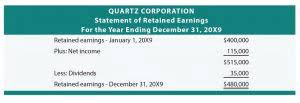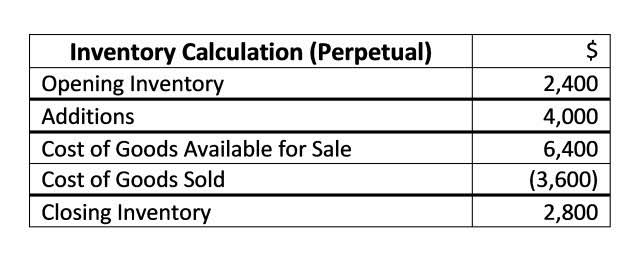
For example, businesses need an EIN to open a business bank account, apply for business licenses and permits, and comply with federal and state tax laws. Having an EIN demonstrates that a business is properly registered and authorized to operate. On the other hand, sole proprietorship and single-member LLCs without employees that don’t file excise or pension plan tax returns are not required to get an Employer Identification Number (EIN). Additionally, working with professionals who have extensive experience in EIN registration and tax compliance can prevent costly mistakes. Many business owners make errors during the EIN operation process, leading to unnecessary delays.
Get Taxes Done Right, Without the Stress

Make your check or money order payable to Internal Revenue Service and show your name (as shown on the SS-4), address, kind of tax, period covered, and the date you applied for your EIN. International businessForeign businesses with activities in the U.S. or domestic businesses with activities outside the U.S. Give your business’s physical address and phone number, the business name, trade name (if any), and start date. Visit the IRS website and click “Apply Online Now” on the FEIN application page. You must complete this application in one session which lasts for 15 minutes, as you will not be able to save and return at a later time.
- You may apply for an EIN online if your principal business is located in the United States or U.S.
- Without an EIN, a business may not be able to fulfill its tax obligations.
- Our experts suggest the best funds and you can get high returns by investing directly or through SIP.
- The IRS offers guidance on how to handle these changes, and it’s wise to consult tax pros or the IRS to make sure everything’s done right.
- Running a business means meeting a lot of government requirements and following a number of laws.
- This allows the IRS to link all of your financial activities, payroll and tax returns to your specific business.
- The main purpose of FEIN is to help the IRS monitor the activities of businesses regarding taxes and regulations.
FEIN Renewal and Cancellation
Users shall be the sole owner of the decision taken, if any, about suitability of the same. These numbers are unique to the businesses they are assigned to and do not expire. The same number is never reissued to another business, even if the original business is closed down. Since tax rules can differ from one state to another, business owners should check the local rules to see if they need a State EIN and how to apply for it. If you work for yourself, it’s not as vital to have an EIN or FEIN as long as you do not take on employees.

Related Legal Terms and Issues
This includes corporations, limited liability companies (LLCs), trusts, and nonprofits. Even businesses without employees may need one for certain purposes, such Accounting for Technology Companies as opening a business bank account. Subscription-based bookkeeping services are transforming the way businesses manage their finances, offering predictable pricing, scalability, and automation-driven efficiency. Instead of paying hourly or hiring in-house staff, businesses can now access professional bookkeeping on a fixed monthly or annual subscription model.
- Each payroll run involves calculating withholdings for Social Security, Medicare, and federal income taxes, which are then accurately reported to the IRS using the FEIN.
- Businesses need an EIN to pay their federal taxes online, to file their annual tax return, and to issue payroll and tax documents to suppliers.
- An EIN will become your business’s permanent federal taxpayer identification number once it is assigned.
- They collect all the necessary forms, such as W-2 for employee wages and Form 941 for payroll taxes.
- The Form W-7 requires documentation substantiating foreign/alien status and true identity for each individual.
Tax exemption
International applicants or businesses requiring additional verification may experience extended processing times. A Federal Employer income statement Identification Number (FEIN) is a unique identifier assigned by the Internal Revenue Service (IRS) to business entities for tax administration purposes. Keeping accurate records throughout the year is important to effective tax planning and preparation.
Some business structures, such as corporations with subsidiaries or divisions operating under different legal entities, may need a new employer identification number for each entity. For example, if a corporation owns multiple LLCs, each LLC ein number definition may require its own FEIN. However, a single business entity typically has only one FEIN unless it undergoes significant restructuring, such as a merger, acquisition, or change in ownership. This role is typically fulfilled by an individual, such as the true principal officer, general partner, grantor, owner or trustor. In the case of government entities, an entity may be designated as the responsible party.
- If you want to open up a business bank account or apply for a business credit card, organizations that provide these services will ask for your EIN upon application.
- In summary, a FEIN is vital for managing your business’s federal tax responsibilities, enhancing your credibility, and maintaining legal compliance.
- If you need an EIN quickly, this might not be the best method to use.
- This section delves into what FEIN means and its significance for businesses.
- The purpose of an EIN is to identify businesses, estates, trusts, and other entities for tax-related purposes.
- It also conducts cross-checks to identify duplicates and inconsistencies, ensuring thorough financial records.
For more information please see the Social Security Administration website. It’s free, and you’ll get your EIN no matter which method you choose. If you lose or misplace your TAN or EIN, it’s important to contact the issuing authority immediately to secure your tax records and prevent misuse.

Other nonprofitsOrganizations meeting specified requirements may qualify for exemption under subsections other than Section 501(c)(3). These include social welfare organizations, civic leagues, social clubs, labor organizations and business leagues. To receive an EIN, a business needs to be located in the U.S. and the person applying for the EIN has to have their own taxpayer identification number, such as a social security number. An EIN will become your business’s permanent federal taxpayer identification number once it is assigned.
- In the same manner, the IRS assigns Employee Identification Numbers (EINs) to businesses, usually when they are newly established.
- This is a nine-digit unique number assigned by the Internal Revenue Service (IRS) to businesses operating in the United States.
- It’s used for filing tax returns, reporting income, and paying employment taxes.
- So taking advantage of FEIN combined with using software like Synder to streamline dealing with taxes will help businesses stay on top of their finances.
- Here’s everything you need to know about FEINs, how to apply, and what they can do for your business.
What are the documents required to get EIN?
A FEIN differs from other types of taxpayer identification numbers. Limited Liability Company or LLCA corporate structure whereby the members of the company cannot be held personally liable for the company’s debts or liabilities. PartnershipA relationship existing between two or more persons who join to carry on a trade or business. You won’t be charged any fees if you choose to complete your EIN application through the IRS website.
